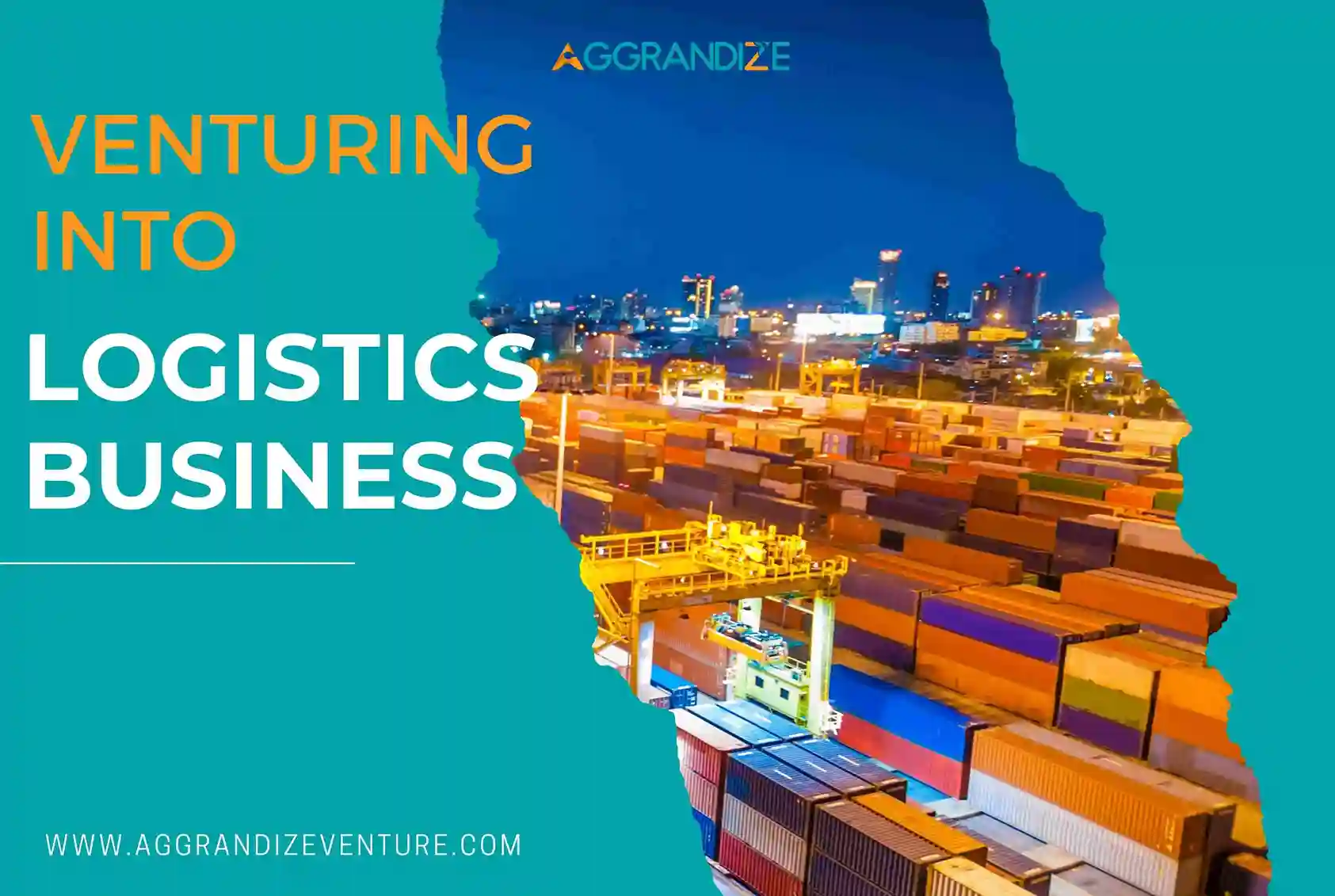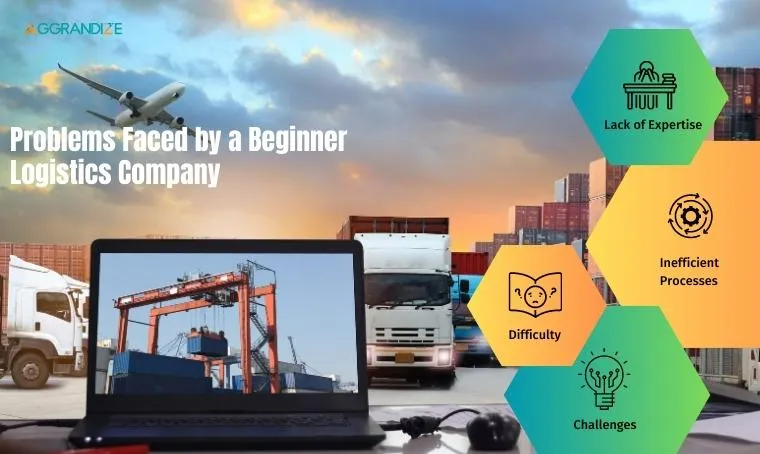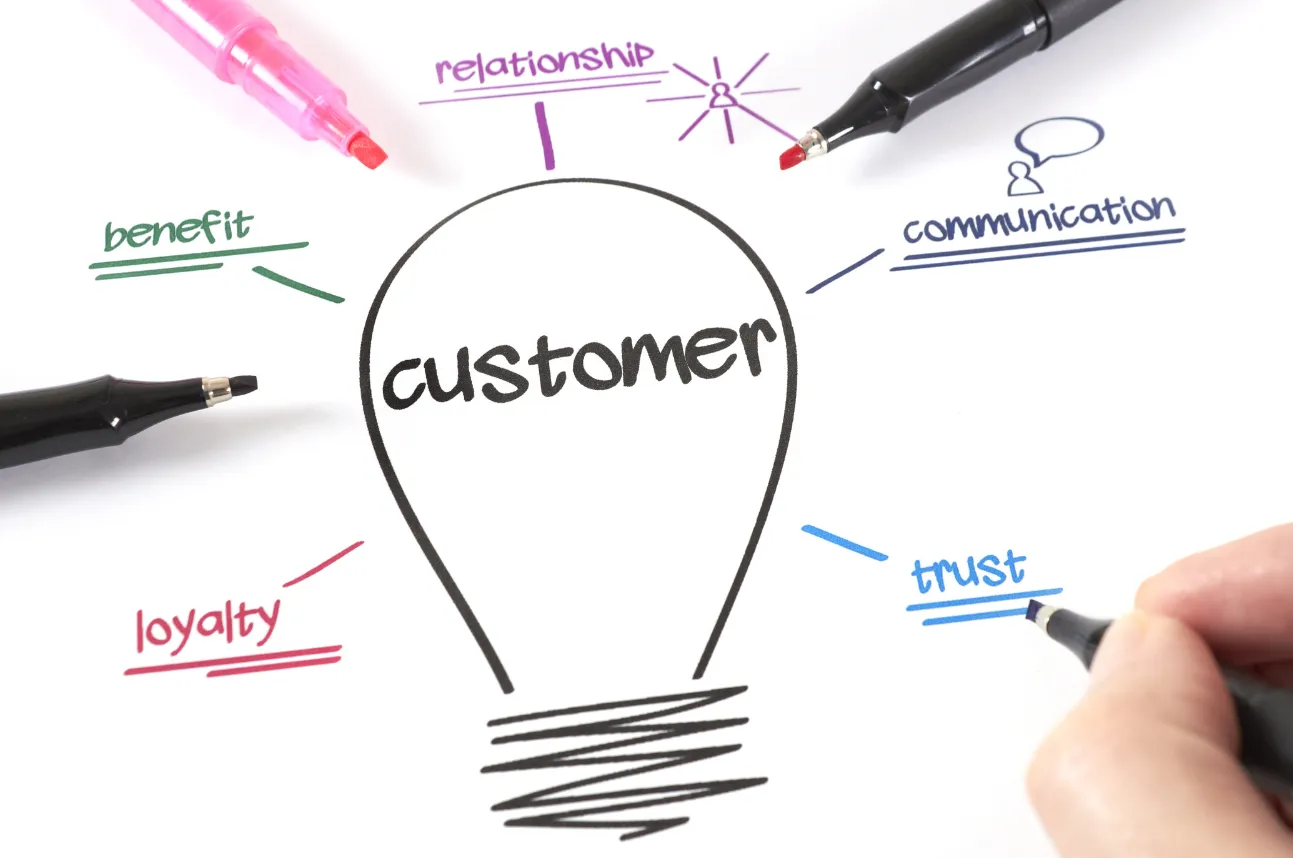Shipping ERP
Venturing into Logistics Business
Date: 04-04-2023
Starting a logistics company can be an exciting and fulfilling journey. As you build your business, you'll have the opportunity to solve complex challenges, provide value to your customers, and create jobs for your community. Seeing your company grow and thrive can bring a great sense of satisfaction and happiness. Competition is fierce in the logistics industry, but a new company can still succeed by carving out a unique niche and delivering excellent service. To stand out, focus on providing value-added services, optimizing supply chain efficiency, and cultivating strong relationships with customers. Embrace innovation and stay ahead of the curve to thrive in a competitive market.
What are the problems faced by a Beginner Logistics company?
Limited resources can restrict a new logistics company's ability to scale up quickly. This can lead to manual processes and increased errors, delays, and costs, as well as inefficient use of resources such as vehicles, labour, and storage space. As a result, higher costs, longer delivery times, and poor customer service may occur. Investing in technology to manage the operations of every business such as transportation management software with GPS tracking devices, warehouse management systems, Freight Forwarding Software, NVOCC, Inventory management system can hap the business in growing phase to effectively use its resources and effectively market and advertise its services to attract new customers and grow its business.

Lack of Expertise:
New Logistics companies with a lack of expertise may find it challenging to handle different types of shipments, including oversized, hazardous, or perishable goods, which can result in errors, delays, and damage to the goods. Additionally, they may struggle to deal with different types of customers, such as businesses, individuals, and government entities, leading to poor customer service, communication breakdowns, and lost business. These companies may also have inefficient processes due to outdated technology, manual processes, and a lack of proper planning and management, resulting in errors, delays, and increased costs. Furthermore, they may struggle to manage transportation-related risks, including theft, damage, and liability, potentially leading to financial losses and damage to the company's reputation.
A proper shipping ERP system can provide transparency, real time activity tracking, eliminate human errors reduce revenue leakages.
Inefficient processes:
Inefficient processes can cause delays in transporting goods, leading to missed deadlines, dissatisfied customers, and lost business. They can also result in wasted resources, such as labour, time, and fuel, which increase costs for new logistics companies. Additionally, poor customer service, including delayed deliveries, inaccurate tracking information, and miscommunication with customers, can result from inefficient processes. Inaccurate data, such as inventory levels, delivery times, and tracking information, can also arise from inefficient processes, causing errors, delays, and dissatisfied customers. Finally, a lack of visibility into the supply chain, including inventory levels, transportation schedules, and delivery status, can make it difficult for logistics companies to respond to changes in demand or unexpected events.
Defining a business process and managing it is a core area where every business owner has to focus, process can be set up and efficiency can be achieved only through implementing a better logistics operation system

The logistics industry is highly competitive, with many established industries. As a result, new logistics companies may find it challenging to differentiate themselves and attract customers. These new companies may have limited marketing resources, making it difficult to advertise their services effectively and reach a broader audience. Additionally, logistics companies may rely heavily on customer referrals to attract new business. If they don't have a strong customer base or if customers are dissatisfied, they may struggle to attract new customers. Moreover, new logistics companies may find it difficult to establish trust with potential customers, especially if they are new or lack a track record. This can be particularly challenging when dealing with large corporations or government entities. Lastly, many customers are cost-sensitive when it comes to logistics services, making it challenging for new logistics companies to price their services competitively while still maintaining profitability.
Logistics business needs a sale driven approach and a software that can manage the customer relationship is essential to keep track of sales and marketing activities and enhance customer experience that leads to higher customer retention rate
Competition from established players:
Logistics companies face stiff competition from established players in the industry, which can create various challenges for them. Firstly, established companies may have a larger market share, making it difficult for new entrants to compete. Secondly, established companies may have stronger brand recognition, making it challenging for new companies to build their reputation and attract customers. Thirdly, established companies may have more resources, such as technology, equipment, and experienced staff, which can enable them to provide better service and more efficient operations. Fourthly, established companies may have established relationships with suppliers, carriers, and other key players in the industry, giving them a competitive advantage. Finally, established companies may have established pricing strategies, making it challenging for new companies to price their services competitively while still maintaining profitability.
Every new entrant to this business should be adaptable to changing needs in this business and industry trends. When the business is technology driven it will have better options to manage the customers, fix the freight rates based on the market insights, plan the routes and define shorter delivery timelines. For a freight forwarder, NVOCC operator or warehousing business a software that can provide with these key aspects to run the business is essential to keep up with the competition.
New logistics companies may not have the financial resources to invest in expensive software solutions, limiting their ability to compete with established players who have already invested in sophisticated software solutions. They may also lack the knowledge and expertise required to select, implement, and maintain appropriate software solutions for their operations, leading to inefficiencies, errors, and lost business. Additionally, new logistics companies may struggle to integrate their software with existing systems and platforms, resulting in data inconsistencies, delays, and increased costs. Managing security risks associated with software, including cyber threats and data breaches, may be challenging due to lack of expertise. Furthermore, as the technology landscape constantly evolves, new logistics companies may find it difficult to keep up with the latest software trends and advancements, resulting in competitive disadvantages and lost business opportunities.

Choosing a Software that provides flexible engagement options can enable business of any size and segment to easily adapt to software and reap its benefits. There are multiple software providers who offer NVOCC software, freight forwarding software, ISO tank Software and depot management system at flexible engagement options.
How to automate your new logistics company in 2023?
Before you start automating your new logistics company, it's essential to understand the needs and requirements of your logistics process. You need to identify what tasks you want to automate, such as NVOCC operations, inventory management and tracking, Freight Forwarding, CHA, Depot management among others. This will help you to select the right software that can meet your specific requirements. There are several types of logistics software available in the market, such as ISO Tank Software, NVOCC & Freight Forwarding,Transportation management software, warehouse managementsoftware, and supply chain management software. You need to select the software that combines each and every business function of shipping & logistics such as ZEALIT Shipping ERP.
Consider factors such as cost, features, scalability, ease of use, and customer support when selecting the software. The logistics software you select needs to integrate seamlessly with other systems such as CRMand accounting software. Integration ensures that data flows smoothly between different systems, reducing errors and improving efficiency. Once you have selected and integrated the ZEALIT Shipping ERP, you need to train your employees on how to use it. This will ensure that your employees can use the software effectively and efficiently, reducing errors and improving productivity (ZEALIT Shipping ERP gives training to all the users with Hyper care support). After the ZEALIT Shipping ERP is implemented, it's essential to monitor and evaluate its performance regularly. This will help you to identify any issues and make necessary adjustments to ensure that the ZEALIT Shipping ERP is meeting your needs and requirements effectively. As your logistics needs change, you may need to make changes to the software to ensure that it continues to meet your needs effectively. Continuously improving the software will ensure that your logistics process remains efficient and effective and ZEALIT Shipping ERP gives updates on the software regularly as per the current logistics trend.